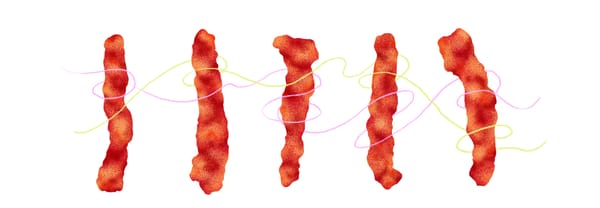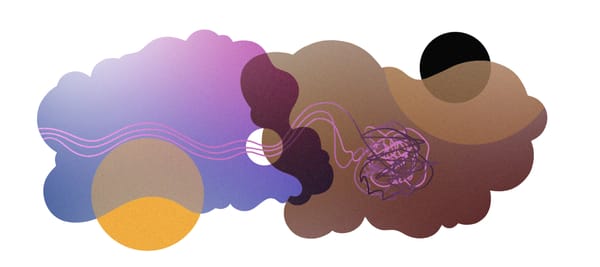Broken Macarons
by Amy Suardi | The sweetness of imperfection.

Caramel, mango, coffee, raspberry. Cinnamon, vanilla, pumpkin, pistachio. Macarons are two dollars apiece at the bakery where my daughter works, saving up for a car and a trip across the country.
An exact degree of humidity is required for the confection’s satiny but strong dome, rough but frilly crown. The softness of the macaron’s collapse equals the precision of its construction. The tooth first touches a stiff veil, like the crust that forms over snow at night. The meringue resists before surrendering its gooey heart and melting everywhere.
Once broken, macarons are worthless. On the days when Sofia returns home from her shift with a crinkled white bag, she smiles as if to say, What misfortune, and what luck.
She stores them in the fridge, in a plastic box on the top shelf—chocolate filled with chocolate ganache, lemon with lemon curd buttercream, apricot with apricot preserves.
Extending the box during a Nerf gun fight, she tells her little brothers, “You can each choose one,” as if offering bonbons to princes.
Crushed, cracked, or chipped, these macarons will never delight a dinner party hostess or commemorate an anniversary. They are grabbed by fingers that have just held mountain bikes. Popped into mouths between handfuls of corn chips and streams of potty words. Appreciated not for form, but for content. “Hey,” said one brother to the other, “you took the last passion fruit!”
Depending on the origin story one encounters, macarons were born in Arabia or in French or Italian monasteries, where almond meringue was dolloped in the shape of monks’ navels. It was in Paris, most accounts concur, where the cookies were transformed into three-layer delicacies showcased in tearooms and patisseries.
When Sofia first mentioned macarons, I had the vague sense that I had missed some chic fad. Perhaps out of rebellion or a lack of respect for broken things, I ate my first one thoughtlessly, tossing a compliment to Sofia before checking email.
One night, I asked Sofia’s littlest sister, after tucking her in, “What’s one thing you’re grateful for?” She said, “I’m grateful for macarons.”
The next time I chose a macaron from Sofia’s box, I paused before putting it in my mouth. How delicate and once beautiful, how frail and prone to failure. The baker knows this, too, and yet keeps making them, over and over.
Amy Suardi is the author of My Beautiful Terrible Pandemic Life. Her essays and prose poetry have appeared in River Teeth, Start It Up, Motherwords, and Babble. She facilitates retreats and free cowriting circles for women, and shares the highs and lows of creative writing in her blog, Tending the Creative Garden. Come see her at amysuardi.com or on Twitter.
*This essay is a Short Reads original.
Support our efforts: ☕ buy us a coffee.






